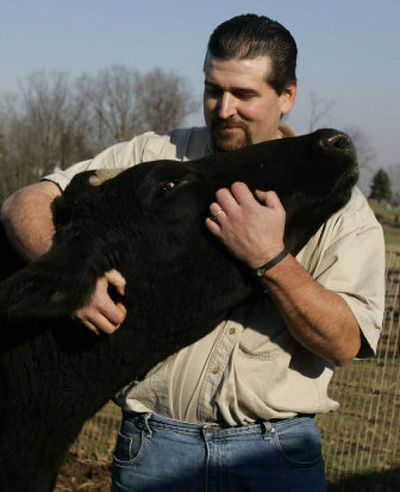FDA set to OK food from cloned livestock

WASHINGTON – Federal scientists have concluded there is no difference between food from cloned animals and food from conventional livestock, setting the stage for the government to declare today that cloned animals are safe for the human food supply.
The Food and Drug Administration planned to brief industry groups in advance of an announcement. The agency indicated it would approve cloned livestock in a scientific journal article published online earlier this month.
The agency “concludes that meat and milk from clones and their progeny is as safe to eat as corresponding products derived from animals produced using contemporary agricultural practices,” FDA scientists Larisa Rudenko and John C. Matheson wrote in the Jan. 1 issue of Theriogenology.
Also, the FDA believes that no special labels are needed for food from clones or their offspring, the scientists wrote. Consumer groups say labels are a must, because surveys have shown people to be uncomfortable with the idea of cloned livestock.
“Consumers are going to be having a product that has potential safety issues and has a whole load of ethical issues tied to it, without any labeling,” said Joseph Mendelson, legal director of the Center for Food Safety.
Carol Tucker Foreman, director of food policy at the Consumer Federation of America, said the FDA is ignoring research that shows cloning results in more deaths and deformed animals than other reproductive technologies.
The consumer federation will ask food companies and supermarkets to refuse to sell food from clones, she said.
“Meat and milk from cloned animals have no benefit for consumers, and consumers don’t want them in their foods,” Foreman said.
The FDA scientists wrote that by the time clones reached 6 to 18 months of age, they were “virtually indistinguishable” from conventionally bred animals.
Final approval of cloned animals for food is months away; the FDA will accept comments from the public after issuing a risk assessment today.
Those in favor of the technology say it would be used primarily for breeding and not for steak or pork tenderloin. Cloning lets farmers and ranchers make copies of exceptional animals.
“We clone an animal because we want a genetic twin of that animal,” said Barb Glenn of the Biotechnology Industry Organization. “It’s not a genetically engineered animal; no genes have been changed or moved or deleted,” she said. Thus, consumers would mostly get food from their offspring and not the clones themselves, Glenn said.
Still, some clones would end up in the food supply. As with conventional livestock, a cloned bull or cow that outlived its usefulness would probably wind up at a hamburger plant, and a cloned dairy cow would be milked during her breeding years.
That’s unlikely to happen soon, because FDA officials have asked farmers and cloning companies since 2001 to voluntarily keep clones and their offspring out of the food supply.
The informal ban would remain in place for several months while the FDA accepts comments from the public.
Some surveys have shown people to be uncomfortable with food from cloned animals; 64 percent said they were uncomfortable in a September poll by the Pew Initiative on Food and Biotechnology, a nonpartisan research group.
There are about 150 cloned cows out of 9 million U.S. dairy cows, said Susan Ruland, spokeswoman for the International Dairy Foods Association.